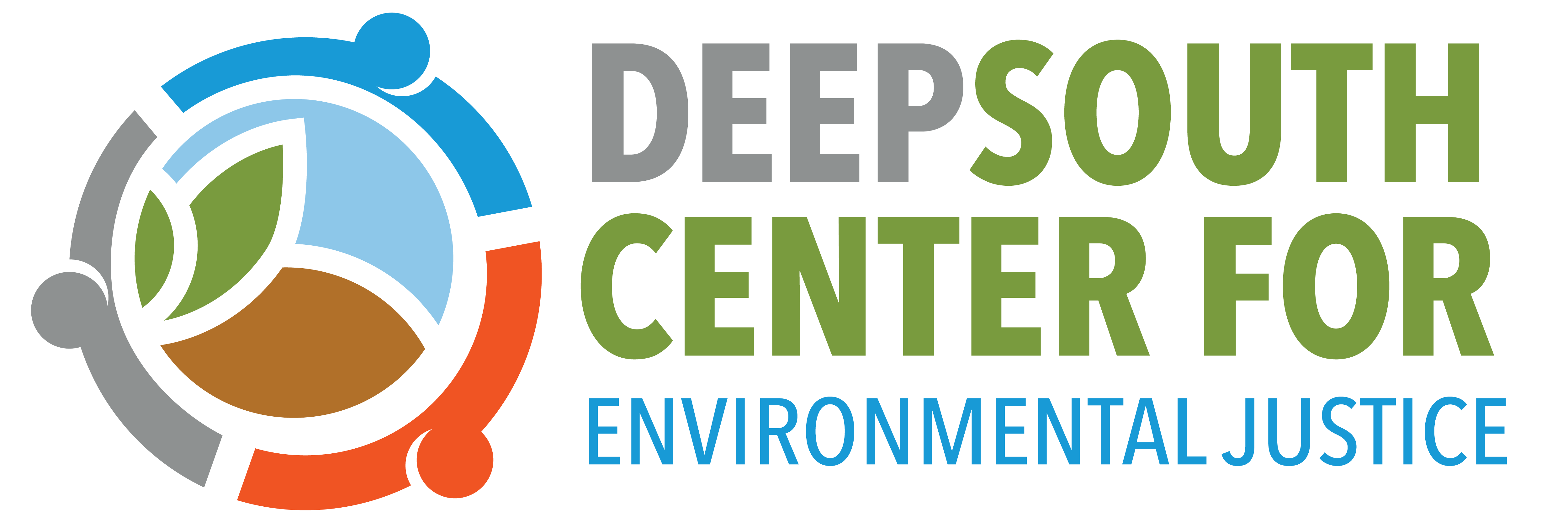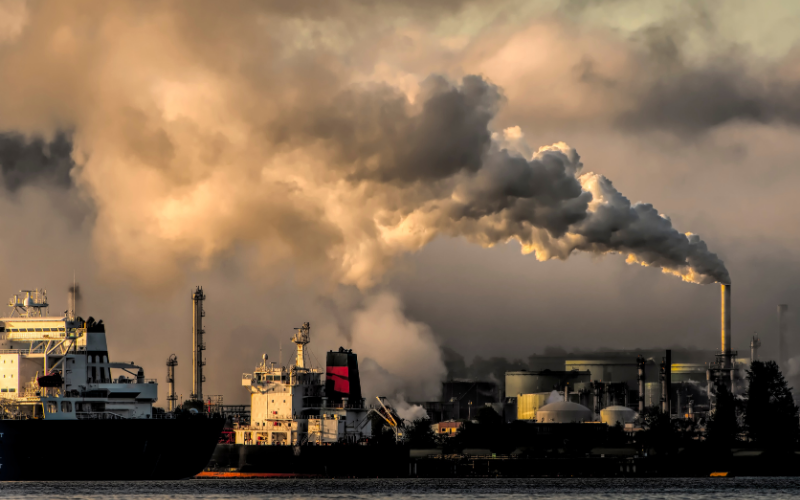
May 12, 2023 | Dr. Beverly Wright News, DSCEJ General News, Research and Policy News
May 12, 2023
NEW ORLEANS, LA – Following yesterday’s news of the EPA’s newly proposed pollution limits, Dr. Beverly Wright, Founding Executive Director of the Deep South Center for Environmental Justice, released the following statement:
“The steps the EPA is taking to limit deadly pollution from power plants are bold and necessary. The communities on the fence line of these plants, in most cases communities of color, have been suffering for decades as the fossil fuel power industry has been able to legally poison the water they drink and the air they breathe. The fight for stronger regulation of these polluting industries has been our mission for more than 30 years and we’ve worked with countless community advocates whose work on the ground has led us to this moment.
“In recent months, Administrator Michael Regan and the EPA have announced a string of new policies including proposed rules to strengthen standards on cancerous pollution and air quality standards. With each announcement, we are even more encouraged by the Biden Administration’s commitment to climate justice and protecting our fence-line communities. This is the type of action required to meet this moment in the crisis we are facing now.”
###
About the Deep South Center for Environmental Justice
Families in the Gulf Coast deserve to live in communities that are free from deadly air and are more resilient to climate change and extreme weather. The Deep South Center for Environmental Justice (DSCEJ) works to empower and engage communities to put environmental justice and equity at the center of all climate action. Led by environmental justice scholar and advocate, author, civic leader and professor of Sociology Dr. Beverly L. Wright, the DSCEJ uses research, education, and community and student engagement to advocate for policy change, lead health and safety training for environmental careers, develop social and emotional community wellness programs, and create new and environmentally healthy opportunities for the residents of communities disproportionately impacted by historic environmental injustice.
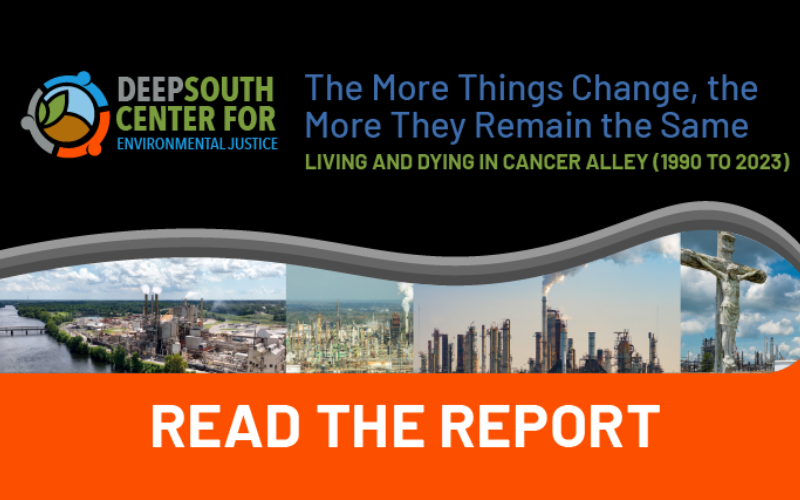
May 8, 2023 | Dr. Beverly Wright News, DSCEJ General News, Research and Policy News
New Report Illustrates Proximity of Petrochemical Facilities to Black Communities in the Mississippi River Chemical Corridor
FOR IMMEDIATE RELEASE: May 8, 2023
Contact: Ginger LeBlanc | gingerl@dscej.org
NEW ORLEANS, LA – Today, the Deep South Center For Environmental Justice (DSCEJ) released a new report titled “The More Things Change, the More They Remain The Same: Living and Dying in Cancer Alley” updating the organization’s’ 1990 mapping project that illustrates toxic pollution in relation to poverty and minority populations in the Mississippi River Chemical Corridor, also known as Cancer Alley.
The corridor produces one-fifth of the United States’ petrochemicals and has transformed the region’s working-class communities into some of the poorest and sickest communities in Louisiana. The new maps show that, while the area has technically seen a decrease in greenhouse gases and total air emissions, the risk has grown exponentially for Black communities. The region’s polluting facilities are concentrated almost exclusively in their backyards and environmental justice experts are now calling the region a “massive human experiment.”
“The data we’ve gathered to update our 1990 maps illustrates what we’ve known to be true anecdotally – Cancer Alley is one of the deadliest regions in the country for Black people,” said Dr. Beverly Wright, Founder and Executive Director of DSCEJ. “We’ve found that the more things have changed in the last 30 years for so many, the more things stay the same for Black communities, and in many cases have gotten worse. We have to stop the construction of new petrochemical facilities and reduce the concentration of them in minority communities. It’s the only way to protect people going forward and make sure that the suffering we’ve had to endure for decades does not continue.”
DSCEJ’S updated maps show Cancer Alley has 170 petrochemical facilities reporting toxic chemical emissions and 149 reporting greenhouse gas emissions.The number of facilities is only growing, with 29 in the proposal stage or currently under construction, all in majority Black communities. DSCEJ also factored in the growing cancer risk in the region with the exposure to these chemicals putting the area in the 80 to 90th and 95 to 100th percentile of cancer risk in the nation.
In September 2022, DSCEJ joined forces with local groups as part of the Beyond Petrochemicals campaign, Bloomberg Philanthropies’ $85 million effort to stop the expansion of more than 120 petrochemical plants in Louisiana, Texas and the Ohio River Valley.
“Fossil fuel pollution has degraded the lands and lives of Black and brown people for far too long – the time for accountability is now, ” said Heather McTeer Toney, Executive Director of the Beyond Petrochemicals Campaign. “Communities of color deserve the same access to clean air, water, and soil afforded to wealthier, white communities. The maps provided by Deep South Center for Environmental Justice showcase that there is much work to be done to achieve equity. With the decades-long, historical patterns of racial injustice in Louisiana’s ‘Cancer Alley’ exposed, we are inspired to put our resources to work to safeguard local communities and finally put an end to the expansion of the toxic petrochemicals industry.”
The new report is supported by Bloomberg Philanthropies’ Beyond Petrochemicals campaign. Click here to view the report and here to view the executive summary.
###
About the Deep South Center for Environmental Justice
Families in the Gulf Coast deserve to live in communities that are free from deadly air and are more resilient to climate change and extreme weather. The Deep South Center for Environmental Justice (DSCEJ) works to empower and engage communities to put environmental justice and equity at the center of all climate action. Led by environmental justice scholar and advocate, author, civic leader and professor of Sociology Dr. Beverly L. Wright, the DSCEJ uses research, education, and community and student engagement to advocate for policy change, lead health and safety training for environmental careers, develop social and emotional community wellness programs, and create new and environmentally healthy opportunities for the residents of communities disproportionately impacted by historic environmental injustice.
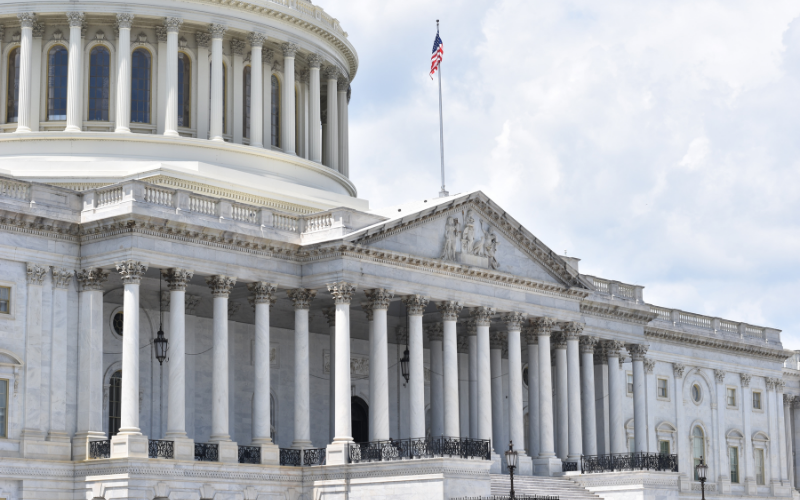
Apr 21, 2023 | DSCEJ General News, Research and Policy News
FOR IMMEDIATE RELEASE: April 21, 2023
(New Orleans, LA) – Today, President Biden signed a new Executive Order, Revitalizing Our Nation’s Commitment to Environmental Justice for All, that will revitalize the federal government’s commitment to addressing historical environmental injustices. This executive order will establish the White House Office on Environmental Justice, which will oversee and coordinate the federal government’s efforts to address and aid communities so as to promote access to clean air and water and protect overburdened communities that have been overexposed to pollution.
“This executive order is a promise made and a promise kept by the Biden Administration. I was a part of the team that worked on the original executive order signed by President Bill Clinton in 1994. Although it was an historic step in the right direction, it lacked accountability measures to ensure its efficacy,” said Dr. Beverly Wright, Founder and Executive Director of the Deep South Center for Environmental Justice. “This new order strengthens the 1994 executive order by operationalizing and institutionalizing the recommendation within every level of the federal government. And to ensure accountability, each agency will report all progress made directly to the president. But, while today’s executive order is historic, much work must be done to achieve true environmental justice, including full implementation of Justice40 initiatives and funding the new Civilian Climate Corps to create a 21st-century energy workforce.”
Additionally, the Executive Order will:
- Strengthen engagement with communities and mobilize federal agencies to confront existing and legacy barriers and injustices;
- Promote the latest science, data, and research, including on cumulative impacts;
- Increase accountability and transparency in federal environmental justice policy;
- Honor and build on the foundation of ongoing environmental justice work.
READ THE EXECUTIVE ORDER FACT SHEET HERE

Apr 18, 2023 | CIRC News, DSCEJ General News, Funding News
For Immediate Release
April 18, 2023
New Orleans, LA – The Deep South Center for Environmental Justice (DSCEJ) is pleased to announce that it has been selected as an Environmental Justice Thriving Communities Technical Assistance Center (EJ TCTAC), by the U.S. Environmental Protection Agency (EPA) in partnership with the U.S. Department of Energy. The Center will receive a $10 million grant as part of President Biden’s Investing in America agenda which includes investments to advance environmental justice.
As an EJ TCTAC, DSCEJ will help remove barriers and improve accessibility to federal resources for communities to address environmental justice issues. To help communities effectively manage grant funding, the Center will provide training, guidance, and other assistance on how to navigate federal grant application systems and how to write strong grant proposals. Additionally, EJ TCTACs will provide guidance on community engagement and meeting facilitation, including translation and interpretation services for limited English-speaking participants. Each technical assistance center will also create and manage communication channels to ensure all communities have direct access to resources and information.
“We are thrilled to receive this grant and to be selected as one of only 17 Environmental Justice Thriving Communities Technical Assistance Centers in the country by the EPA and the Department of Energy,” said Dr. Beverly Wright, Executive Director of DSCEJ. “President Biden’s historic investments in environmental justice are a result of decades of advocacy by communities like ours in the Deep South and across the country. We are proud to be part of this effort, and look forward to helping break down these barriers to help our communities access the federal resources available to them so our children can grow up in an environment free from the dangers of pollution.”
The full list of Environmental Justice Thriving Communities Technical Assistance Centers includes:
- University of Connecticut
- West Harlem Environmental Action, Inc.
- Inter-American University of Puerto Rico-Metro Campus
- National Wildlife Federation
- Deep South Center for Environmental Justice
- Research Triangle Institute
- Blacks in Green
- University of Minnesota
- New Mexico State University
- Wichita State University
- University of Arizona
- San Diego State University
- Willamette Partnership
- University of Washington
In addition, EPA has selected three national EJ TCTACs that will provide additional assistance across the country, with particular capacity to assist Tribes, including:
International City/County Management Association
Institute for Sustainable Communities
National Indian Health Board
###
About the Deep South Center for Environmental Justice
Families in the Gulf Coast deserve to live in communities that are free from deadly air and are more resilient to climate change and extreme weather. The Deep South Center for Environmental Justice (DSCEJ) works to empower and engage communities to put environmental justice and equity at the center of all climate action. Led by environmental justice scholar and advocate, author, civic leader and professor of Sociology Dr. Beverly L. Wright, the DSCEJ uses research, education, and community and student engagement to advocate for policy change, lead health and safety training for environmental careers, develop social and emotional community wellness programs, and create new and environmentally healthy opportunities for the residents of communities disproportionately impacted by historic environmental injustice.

Apr 13, 2023 | DSCEJ General News, Funding News
For Immediate Release
April 13, 2023
(New Orleans, LA) The Deep South Center for Environmental Justice (DSCEJ) is pleased to announce that it has been awarded a $2.3 million dollar grant from the Waverley Foundation. This grant will help support DSCEJ’s core mission including our research, policy, and advocacy initiatives.
As part of their commitment to invest in Black, brown, and Indigenous organizations and support local solutions, the Waverley Foundation selected DSCEJ as a Climate Hubs partner. Climate Hubs partners were selected to strategically foster place-based partnerships, primarily between minority-serving institutions like historically Black colleges and universities (HBCUs), Hispanic serving institutions (HSIs) and tribal colleges and universities (TCUs), and community-based organizations that advance equitable climate strategies.
As a Climate Hub partner, DSCEJ will help facilitate collaboration between higher education institutions that specialize in scientific research, policy experimentation, and the education of future leaders and local grassroots partners. This collaboration will not only help DSCEJ continue to be a leader in the U.S. Environmental Justice movement, but also allow the Center to develop the next diverse generation of climate change activists.
“We are thrilled to receive this grant and to be chosen as a Climate Hubs Partner by the Waverley Street Foundation,” said Dr. Beverly Wright, Executive Director of DSCEJ. “This funding will help The Center continue to identify and meet the needs of our local community through research, outreach, and training. With the support of the Waverley Street Foundation, along with our HBCU Climate Change Consortium, we can continue to shape the next generation of environmental leaders who will seek environmental, climate, and economic justice for Black and Brown communities in the Mississippi River Chemical Corridor and Gulf Coast region.”
“Institutions led by and designed to serve people of color, like historically black colleges and universities and tribal colleges, have long supported communities while preparing future generations with an intersectional lens to advance societal change,” said Alexandria McBride, Strategy Director for Waverley Street Foundation. “The time is now and this is the expertise we must support as we invest in our climate future.”
Other Climate Hubs Partners include:
- Bullard Center for Environmental and Climate Justice at Texas Southern University
- Center for Diverse Leadership in Science at UCLA
- CUNY
- Ecotrust
- The Environmental Collaboratory at Drexel University
- Florida A&M University
- New York City Environmental Justice Alliance
- Salish Kootenai College
- Second Nature
- Tishman Environment and Design Center
- United Negro College Fund
- University of Maryland – College Park’s Center for Community Engagement, Environmental Justice and Health
About the Deep South Center for Environmental Justice
Families in the Gulf Coast deserve to live in communities that are free from deadly air and are more resilient to climate change and extreme weather. The Deep South Center for Environmental Justice (DSCEJ) works to empower and engage communities to put environmental justice and equity at the center of all climate action. Led by environmental justice scholar and advocate, author, civic leader and professor of Sociology Dr. Beverly L. Wright, the DSCEJ uses research, education, and community and student engagement to advocate for policy change, lead health and safety training for environmental careers, develop social and emotional community wellness programs, and create new and environmentally healthy opportunities for the residents of communities disproportionately impacted by historic environmental injustice.
About Waverley Street Foundation
The voices, experiences, and innovations of communities around the world have a central place in protecting people, nature, health, and our planet. Waverley Street Foundation, a 501(c)(3) nonprofit, supports farmers, students, Indigenous peoples, advocates, and many others working in the places they call home. Waverley Street has committed to spend the entirety of its endowment — more than $3 billion as of 2022 — by 2035 to support organizations working on solutions at the intersection of climate change and community priorities. https://www.waverleystreet.org/
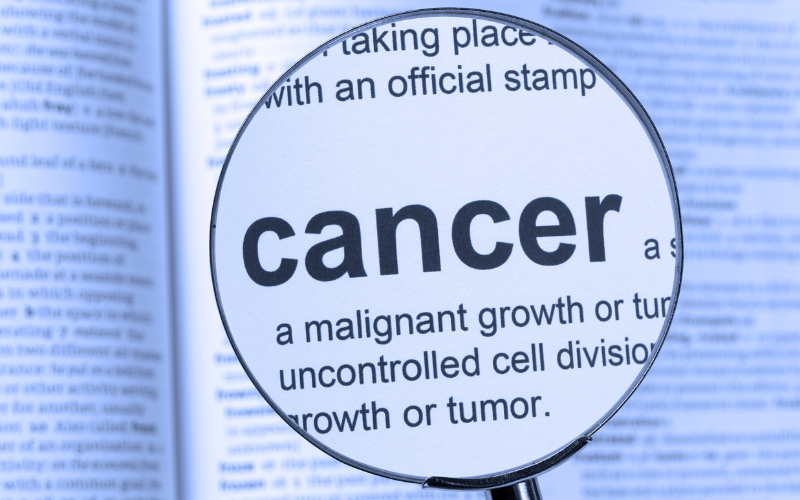
Apr 6, 2023 | DSCEJ General News, Research and Policy News
For Immediate Release
April 6, 2022
New Orleans, LA — In response to the Environmental Protection Agency’s (EPA) proposed rule to strengthen standards that would significantly reduce hazardous air pollutants from chemical plants, specifically the cancerous chemicals that have devastated communities in Cancer Alley, Dr. Beverly Wright, Executive Director of the Deep South Center for Environmental Justice, released the following statement:
“The Deep South Center for Environmental Justice is deeply satisfied with the steps the EPA is taking to reduce the amount of deadly pollution produced by chemical plants. This proposed rule to update several regulations that apply to chemical plants requiring them to monitor levels of highly toxic and cancerous chemicals entering the air in fence-line communities is the most significant rule I have seen in my 30 years of experience working in Cancer Alley.
“For the entirety of my environmental justice career, I have never been able to comprehend how it is possible that industrial facilities are able to poison our air, water, and soil – making people sick and in some cases dying – and not be held accountable for it. The regulations have been set in a way that made it legal through the permitting process to poison us.
“For decades regulating agencies have completely abdicated their responsibility to the communities they are supposed to protect. Unfortunately, that meant generations of families losing loved ones to cancer and fighting it themselves. There is no doubt that the rule EPA is proposing today will save lives.
“During his Journey to Justice tour in Louisiana, Administrator Regan spoke directly with suffering people and saw firsthand what they go through daily. He promised to go back to Washington and do something about it. Today is the result of an administration finally listening to what communities say about how to fix this crisis. This has been and continues to be the fight of our lives, but today is a day to celebrate.”
###
About the Deep South Center for Environmental Justice
Families in the Gulf Coast deserve to live in communities that are free from deadly air and are more resilient to climate change and extreme weather. The Deep South Center for Environmental Justice (DSCEJ) works to empower and engage communities to put environmental justice and equity at the center of all climate action. Led by environmental justice scholar and advocate, author, civic leader, and professor of Sociology Dr. Beverly L. Wright, the DSCEJ uses research, education, and community and student engagement to advocate for policy change, lead health and safety training for environmental careers, develop social and emotional community wellness programs, and create new and environmentally healthy opportunities for the residents of communities disproportionately impacted by historic environmental injustice

